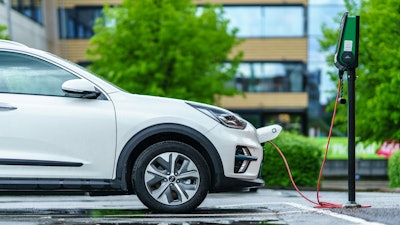
WASHINGTON, D.C. - The U.S. Department of Energy (DOE) announced new immediate policy actions to scale up a domestic manufacturing supply chain for advanced battery materials and technologies on Tuesday.
These efforts follow the 100-Day review of advanced batteries, directed by President Biden’s Executive Order on America’s Supply Chains, which assesses vulnerabilities and opportunities in the current and forecasted battery supply chain landscape as well as identifying policy recommendations to address them.
Hopes from such actions include the U.S. positioned to lead an emerging global market, secure the nation’s long-term economic competitiveness and create well-paying jobs for American workers. All while supporting the Biden Administration’s decarbonization goals.
“We’re going to need a significant increase in battery production to supercharge America’s clean energy future, which means we urgently need to build up our capacity to research, develop, manufacture, and market batteries right here at home,” Secretary of Energy Jennifer M. Granholm said. “Strengthening our domestic supply chain will accelerate our efforts to decarbonize the economy.”
Advanced, lithium-based batteries play an integral role in 21st-century technologies such as electric vehicles and stationary grid storage that will be critical to securing America’s clean energy future.
The U.S. relies heavily on importing advanced battery components from abroad. DOE’s battery supply chain assessment found that currently, the U.S. has less than a 10% global market share for manufacturing capacity across all major battery components and cell fabrication.
Demand for EVs and stationary storage alone is projected to increase the size of the lithium battery market five to ten-fold by the end of the decade. DOE’s assessment underscores the need for policy action to support the full U.S. battery supply chain.
While today's immediate executive actions are important, the Biden-Harris Administration also called on Congress to make critical investments to grow America’s ability to produce high-capacity batteries and the products that use them. View the full DOE fact sheet here.
The new DOE actions announced today include:
- Strengthening U.S. manufacturing requirements in federally-funded grants, cooperative agreements, and research and development (R&D) contracts.
- Releasing a national blueprint to develop a domestic advanced battery supply chain.
- Providing financing to the advanced battery supply chain for electric vehicles.
- Procuring stationary battery storage.
In addition to DOE’s 100-Day Review on advanced batteries, the Departments of Commerce, Defense, and Health and Human Services also today announced actions to spur domestic supply chains in the other three critical sectors outlined in the President’s Executive Order: semiconductors, critical minerals, and pharmaceuticals.
Click here to view the White House fact sheet with the full list of immediate and recommended actions.






















